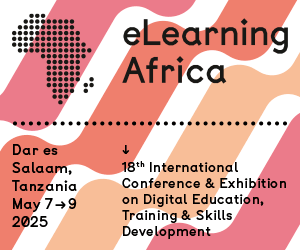Scotland's Digital Technologies Body Focuses on eLearning
 Dunfermline (SCT), March 2022 - Scotland's trade body for the digital technologies industry, ScotlandIS, has published a White Paper on "The Future of eLearning". Commissioned from, and written by, Wendy Edie, Managing Director of Scotland's leading digital learning and assessment developer, eCom Scotland, the White Paper advocates deploying technology-delivered learning to bring sustainability and help drive government and corporate agendas regarding upskilling, re-skilling, and performance support.
Dunfermline (SCT), March 2022 - Scotland's trade body for the digital technologies industry, ScotlandIS, has published a White Paper on "The Future of eLearning". Commissioned from, and written by, Wendy Edie, Managing Director of Scotland's leading digital learning and assessment developer, eCom Scotland, the White Paper advocates deploying technology-delivered learning to bring sustainability and help drive government and corporate agendas regarding upskilling, re-skilling, and performance support.
It argues that, while not every organisation may be ready and eager to apply such technologies as automation and artificial intelligence to its learning and development activities, every organisation needs to consider how digital learning technology can support its teams to deliver continually improving performance.
Drawn from sectors including telecoms, software, IT services, infrastructure specialisms, and digital-media companies, as well as universities, the public sector, financial services, energy industries, and specialist providers, ScotlandIS members employ some 60,000 people. They also generate some £4.7bn of the digital technologies sector's total of £7.5bn gross value added (GVA) to Scotland's economy.
Moreover, Scotland's digital technologies sector contributes at least £3.3bn a year to Scotland's exports and is currently growing at a rate of one-and-a-half times that of the Scottish economy.
"Educators - both in the academic sector and in-house corporate learning and development specialists - are finding it hard to keep up with the latest trends in the emerging edtech sector, particularly since these trends have been heavily influenced by the coronavirus pandemic," commented Wendy Edie. "Current digital education trends such as augmented reality and virtual reality (AR/VR), along with gamification, grab learners' interest but, for educators, it can seem daunting to embrace these new learning realities within the constraints of a realistic budget.
"Now that we're in the pandemic's recovery phase, we have an opportunity to take a strategic approach to education facilitated by technology - and the key word is 'facilitated'," added Wendy. "Any technology intervention must make things easier for the learner and the educator, while maintaining or improving learning's effectiveness."
Discussing the need for interaction in learning - acknowledging that the pandemic cut paid to face-to-face training and encouraged the use of video conferencing platforms - Wendy's White Paper explains how technology can improve accessibility to learning materials for people of all abilities. The White Paper adds that developing and delivering learning materials via technology can bring efficiencies and cost savings, citing that, typically, the creation and administration of traditional paper-based examinations now costs 40% more than doing the same thing via online delivery.
"Using technologies to facilitate skilled teachers spending less time on administration and repetitive tasks, will enable them to dedicate more of their energies to delivering thoughtful, curated, and effective teaching," said Wendy. "Moreover, these technologies will support workers' performance in their job; reward them with objectively assessed and instantly accessed competency qualifications; and help the organisations for which they work to meet their goals."









